
views
Getting Immediate Help
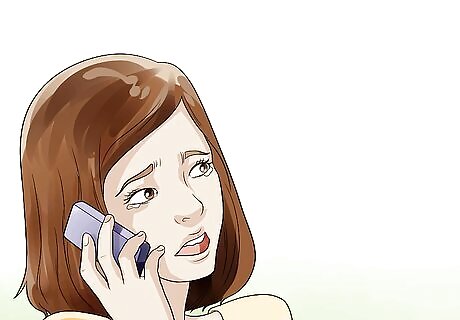
Call emergency services if you are in immediate danger. Emergency services can help get you to a safe place and treat you for medical issues.
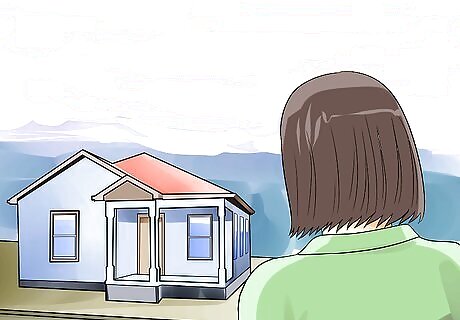
Go to a safe place. Find somewhere to stay where you feel safe. This may be with a friend or family member.
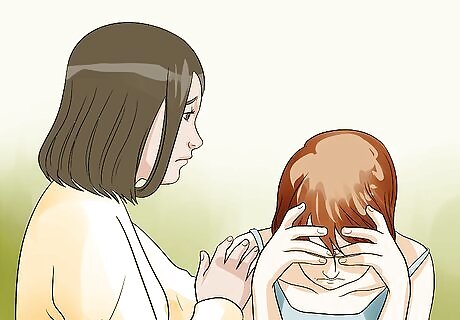
Find a trusted friend or family member. Ask someone you trust to stay with you. This person may also help you with things that you should do, including visiting a doctor or talking with police if you choose to do so.
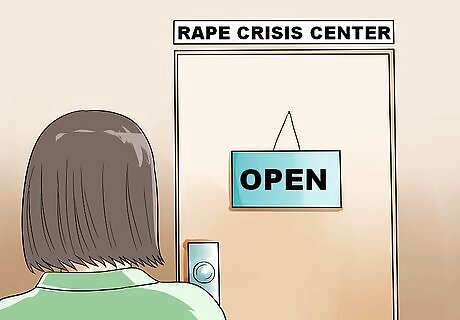
Visit or call a rape crisis center. Rape crisis centers offer counselling services apart from providing pertinent information to the survivor facing a pregnancy out of rape. The main intent behind this service is to empower you so that you are able to take well-informed decisions without being coerced. The rape crisis center can connect you with an advocate who may be able to meet you in person at a hospital or police station.

Preserve evidence. Try not to take a shower or change your clothes until after you have had a medical exam. If you choose to talk with police, you will want to have this evidence available then as well.
Visiting a Medical Doctor
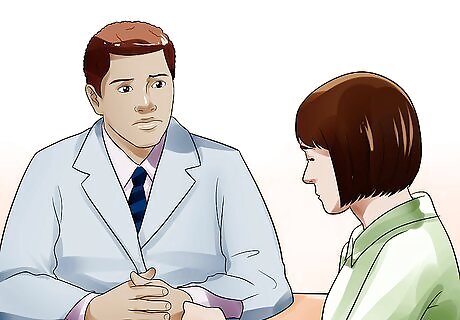
See your doctor. First and foremost, understand that your physical well-being is of utmost importance. In the absence of adequate information and knowledge about your well-being, you will not be able to take charge of your life. It is very important to both your physical and psychological well-being that you visit the doctor and get what all tests need to be done. Many rape survivors do not seek medical attention for various reasons: You are in a state of shock and unable to come terms with the fact that you have been violated and are unable to think of the future course of action. You are engulfed by fears of having to face social stigma and criticism. You are uncertain of being believed and you are unsure that you'd receive support and empathy from different people such as family, friends, police, or medical professionals. You are so overcome by feelings of shame and embarrassment and by what is yet to come (in terms of probing questions, evidentiary physical examination, or a fear of testing positive for STIs). You feel so intimidated that you just prefer to wait for the symptoms to disappear on their own without anybody having to know anything.

Take a trusted friend with you. If you feel like you need moral support while you're at the doctor, bring a trusted friend or family member with you. This person may be able to help explain your situation if you are unable to talk about it.
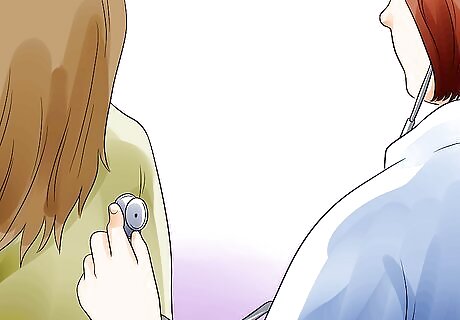
Get a thorough physical examination. A rape can leave the survivor emotionally scarred. But there is also the physical aspect associated with rape. There may be physical damage, including a sexually transmitted infection or other type of injury. Having a full physical examination will help you establish if there are any physical problems.
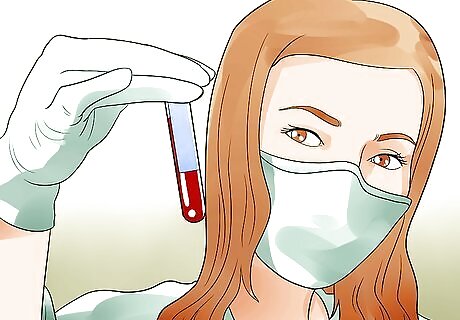
Get tested for sexually transmitted infections. One question that most rape survivors wonder is if they could have contracted a sexually transmitted infection. The possibility of contracting an STI increases if the rape was unprotected sex. Confusion, doubts and worries may arise in the event of not getting tested. This can rob you of your peace of mind. In the event that you don't rule out a sexually transmitted infection (STI), you may live in constant worry about your psychological and physical condition. Don't wait for signs of an STI. Some STIs remain concealed for a long time before they manifest as symptoms. Even if physical symptoms are absent, it is essential to get tested for the presence of STIs in latent form. When they're detected in the early stages, most STIs are curable and treatable. If you ignore symptoms, an STI could become a serious and chronic medical problem that will be hard to treat and cure.
Dealing with Possible Pregnancy
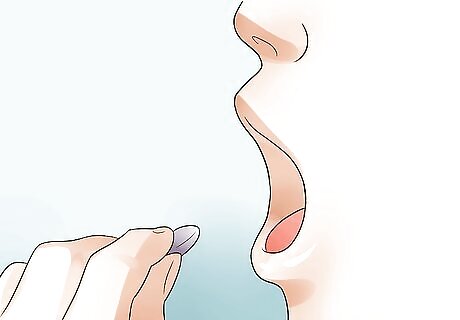
Take the morning-after pill. The morning-after pill prevents possible conception from rape is available as an over-the-counter medicine and should be taken within 72 hours of rape. Plan B One-Step and Next Choice are available over-the-counter without a prescription for women 17 and older. Ella is another option, requiring a prescription. Consult a doctor or rape crisis worker about the pill and its possible side effects. If you are under 17, you will need a prescription for emergency contraception.
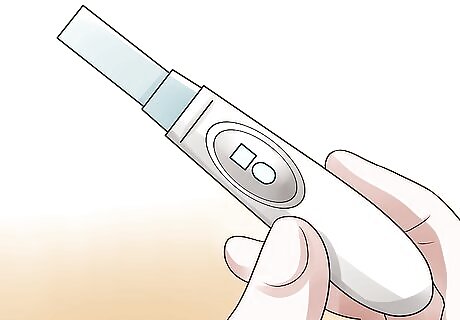
Take a pregnancy test. If you suspect that you are pregnant, you should take a pregnancy test to confirm. Once you realize you are pregnant you might be flooded or enveloped by feelings and emotions of guilt, self-blame, fear, shame, disbelief, and helplessness.

Talk to a trusted friend. This is a difficult situation but it is very important to realize that you are not to be faulted for what happened. It's best to reach out to a person who you think would understand you and your situation. This person should be willing to be your support and strength. If you don't feel you have a friend or family member who could act as a pillar of support without being judgmental, then consider seeing a counselor who has expertise in dealing with situations like yours.
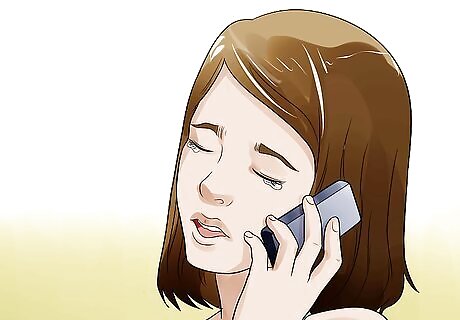
Visit or call a rape crisis center. Rape crisis centers offer counselling services apart from providing pertinent information to the survivor facing a pregnancy out of rape. The main intent behind this service is to empower the person so that they are able to take well-informed decisions without being coerced.

Terminate the pregnancy if you choose. If you are pregnant, you may decide that you don't want to continue the pregnancy. A rape crisis center can offer both pre-abortion and post-abortion support. Your decision to not continue with the pregnancy could leave you with a mix of feelings and emotions. It would not doubt be stressful for you but at the same time make you feel relieved. Post-abortion issues such as depression, guilt, anger, low self-esteem could arise. It will be helpful to stay in touch with the counselor at the crisis center. They might even suggest psychotherapy. Planned Parenthood has resources about abortion services in your area.
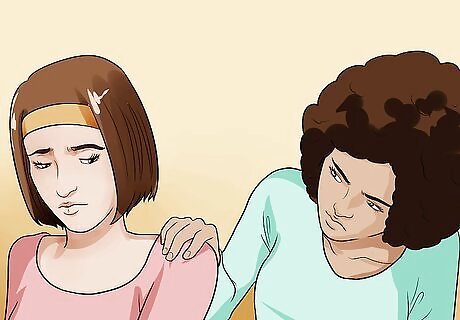
Know you are the ultimate decision-maker. You now have options to choose from. You are bound to receive lot of advice on what you should choose or what is right or wrong for you. Remember that getting raped was not your choice. This doesn't mean that you can be sidelined from making decisions about anything that is related to your rape. It is still your life and you should be the ultimate decision-maker. Just make sure you make a well-informed decision after consulting both your head and heart. It is fine to seek opinion of others. Just make sure to uphold your right to decide on what you should do. You might be deepening your wound by giving precedence to others' values, opinions, or judgments.

Take your time. Don't let others coerce you into doing something that you don't believe in doing or that you don't want to do. Recognizing your own needs is a step towards regaining and retaining your self-esteem, independence and ability to take charge of your life.
Understanding Possible After-Effects
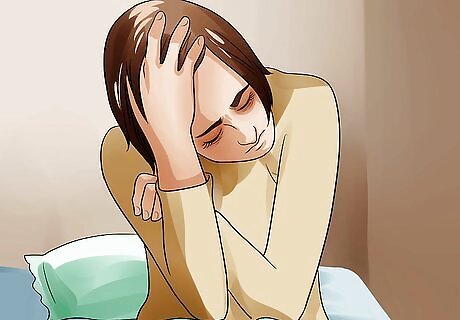
Understand possible effects after a rape. There are a number of both emotional and physical symptoms that a rape victim may encounter after this traumatic experience. These can include: Rape trauma syndrome/PTSD: These include feelings of anxiety, stress, helplessness, guilt, anger, inability to focus, shame, substance abuse, or becoming suicidal. Fear and growing suspicious about people and their behaviors and intentions. Relationship problems: These might arise as a result of becoming emotionally less responsive, detached from loved ones, or doubting the actions and intentions of friends and family. Insomnia, an inability to have sound sleep, or having nightmares. Denial: You might experience an unwillingness to acknowledge the fact that you were raped and expressing inability to remember what happened Flashbacks: You may have repeated recollections of the assault to such an extent that it becomes difficult for you to distinguish between what happened in the past and what is happening in the present. Hyper-arousal: You might feel the need to be on constant alert to ensure you are safe. Eating disorders such as bulimia, anorexia or bingeing. Sexual dysfunction. Physiological symptoms: These might include as diarrhea, constipation, rapid heart rate and breathing, dizziness, unexplained headaches and stomach pains.
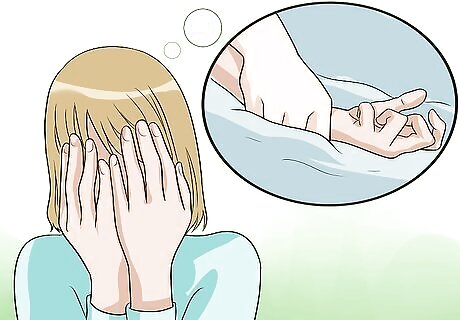
Understand the main symptoms of rape trauma syndrome. Rape trauma syndrome (RTS) is a form of post-traumatic stress disorder (PTSD) that affects survivors of sexual assault. Most treatments intended for rape survivors focus on alleviating the symptoms of PTSD. This is what most victims of sexual assault suffer from as an after effect of rape. Some symptoms of PTSD include: flashbacks, avoidance, sleep problems, fear, mood and anxiety related problems, and hyper-arousal. Survivors can be plagued by constant thoughts of fear and of being attacked. The feelings and thoughts can take such an extreme turn that normal everyday functioning becomes a challenge. They tend to develop distrust towards society in general but men or women in particular. Some may stop mingling or socializing with people out of fear of being assaulted again. They may try to make some major changes in life, such as moving houses, changing school/work, or moving to a different city.
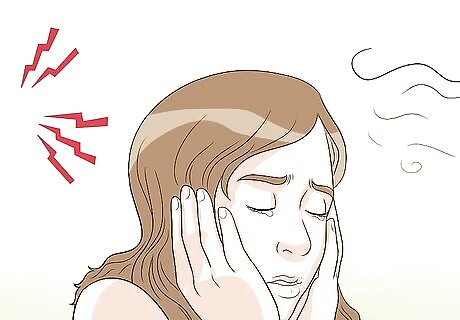
Pay attention to your avoidance behaviors. It is not unusual for rape survivors to be haunted by memories of the traumatic incident. Sounds, smells, images or even certain thoughts and feelings can trigger unpleasant memories that can manifest as physiological and psychological symptoms. Survivors may resort to avoidance behavior to suppress these memories. You might avoid the road you took that day or avoid the area where it happened. You might also avoid the people who remind you of that day. Avoiding discomfort and fear is normal and is in fact seen as helpful. But the positive effects can be felt only in the short term. It's not useful in the long run. In fact, this avoidance behavior can lead the memories and symptoms to manifest in a different manner that could be worse.,
Seeking Professional Help
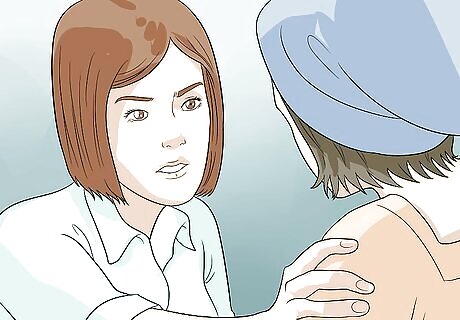
Find a counselor with experience in dealing with rape cases. Sexual assault can sometimes leave the survivor feeling helpless and lost. You might not know which appropriate step or action to take. When sought soon after the rape, counseling services provide assistance and valuable information in the form of medical advice (such as how to prevent an unwanted pregnancy resulting from the rape) and legal advice (such as how to proceed legally against the culprit). Counseling services are usually offered by professionals who have had vast experience in dealing with cases such as rape. Counseling for rape survivors is usually one-on-one. The counselor will help prepare the rape survivor to deal with possible after-effects of the rape. Counselors understand the importance of making the survivor feel safe and supported. Counseling is the place where the rape survivor can expect to be treated with respect and receive adequate support. The rape survivor can expect their counselor to listen patiently and actively., Cognitive behavioral therapies can be used to treat the psychological symptoms arising as after-effects of rape. But the survivor still needs successful recovery from the symptoms. Empowering the survivors and preparing them to re-build their self-esteem, confidence and helping them take charge of their life again are what are essential to make the recovery successful.
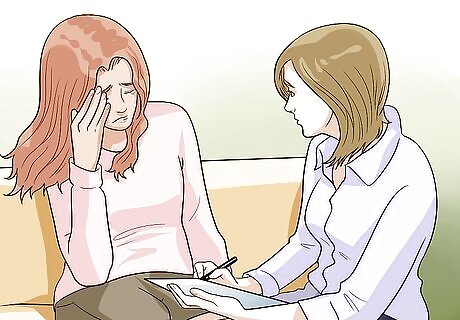
Talk with a therapist about problem-focused active coping. Problem-focused techniques are honest techniques that attempt to manage the problem. Problem-focused techniques help you regain control of your life and guide you in the right direction. It is advisable to confront the problem rather than avoid it. If you keep avoiding the symptoms and the existence of the problem, everything will seem to be fine for a little while. But the problem would still be lying dormant and can erupt anytime. This eruption can lead to more damage. Problem-focused coping techniques help you get to the root of the problem. They can assist you in dealing with the symptoms as well as the problem that is causing the symptoms.
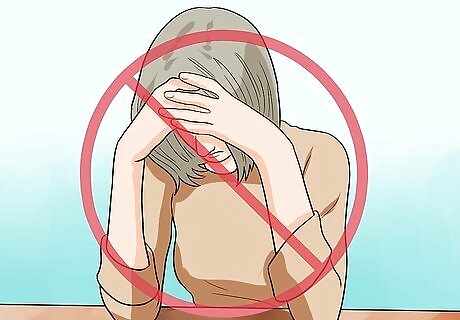
Avoid emotion-focused coping techniques. These types of techniques should be avoided or minimally used. Emotion-focused coping techniques advocate techniques such as avoidance and denial. These are based on the idea that it is best to avoid what you cannot confront and challenge. This line of thinking says that if we stop thinking about something, it goes away from your memory.

Ask your family and friends to seek counseling. A rape survivor is a fighter for sure, but at times even a fighter needs extended support by loved ones. Also, a sexual assault does not leave the family and friends unaffected. They are usually called secondary victims because the effects of the traumatic incident cast a shadow on the “secondary victims.” Counseling is offered to family and friends in order to help them bolster the rape survivor's efforts in dealing with the unpleasant experience and after-effects.
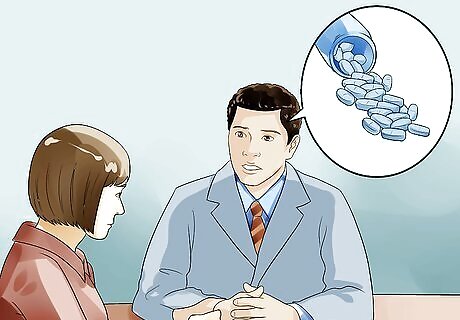
Talk with your therapist about medications. There are some drugs used to treat symptoms that arise from rape trauma syndrome and PTSD. These drugs include: Selective Serotonin Reuptake Inhibitors (SSRIs), Monoamine Oxidase Inhibitors (MAOI), Tricyclic Antidepressants (TCA), and anticonvulsants. Although pharmacotherapy is effective to a certain extent. Keep in mind that other forms of therapies are more promising and yield better results without any side effects. While medication can make the symptoms just wane for some time, therapies try to penetrate to the root of the problem to sort it out and that too without posing any threat of side effects. You most likely will need a prescription from a psychiatrist or your medical doctor for these medications.

Ask about prolonged exposure therapy. Prolonged exposure therapy, also known as flooding, is a psychotherapy technique designed to make the survivor less sensitive to the thoughts and memories of rape. This process of desensitization is carried out by encouraging the person to repeatedly revisit, recollect and relate even the most intimate details of the incident. This involves remembering what happened, how it happened, your state of mind, the trauma you underwent, and how the rape dominated your life, beliefs, thoughts, and behavior. This therapy is “prolonged” because it is not limited to one or two sessions. Instead, it involves a series of sessions (up to 18 depending on the condition of the individual), with each session lasting for about 30-45 minutes. The survivor listens to audio recordings that recount the traumatic incident. Repeatedly making the individual undergo the same feelings and emotions they had during the trauma may help them become habituated to those feelings and thoughts. The idea is that eventually, the feelings are no longer so upsetting. This paves the way for accepting the incident and making peace with the past. The therapy is not easy for either the survivor or the therapist. The survivor will need to revisit and recount intimate details about the rape. The therapist may also find it difficult to make the survivor talk in detail about the rape. Prolonged exposure therapy is seen to tackle symptoms of PTSD successfully apart from dealing with feelings of guilt and depressive symptoms.
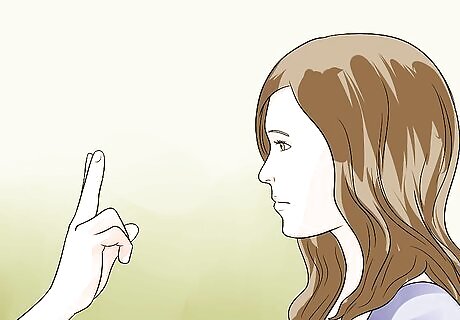
Ask about eye movement desensitization reprocessing. Eye movement desensitization reprocessing (EMDR) is a form of psychotherapy intended to reduce or contain the symptoms such as anxiety, nervousness, helplessness, depression, fear, and guilt that manifest after of a traumatic incident like rape. When a person undergoes this therapy, the rapid movements of their eyes are capable of mitigating the trauma associated with the rape. When a person remembers a traumatic incident, the thoughts, feelings and emotions that accompany the incident adversely impact the functioning of the brain. This is because remembering a rape can be considered equivalent to going through it the first time. The sights, sounds, smells and thoughts associated with the incident serve as reminders about the incident. The therapist will make hand movements and ask the individual to follow the movements as he moves his hands back and forth. Sometimes he alternates the hand movements with fingers or toes. Meanwhile, the individual is told to recall the traumatic incident and everything else associated with the incident, including feelings, thoughts, sights, smells and sounds. Gradually the therapist will lead the individual into thinking and talking about more pleasant events. This therapy is believed to work on reducing negative emotions, thus reducing symptoms that arise due to the presence of negative emotions. EMDR is particularly useful in treating individuals who find it excruciatingly difficult to talk about the sexual assault. It also can be used to treat eating disorders, alcohol and substance abuse that might emerge as after-effects of the rape. This therapy is not a talk therapy like other cognitive behavioral therapies. It also does not advocate medications.
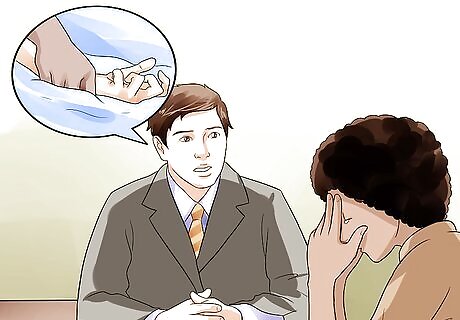
Try stress inoculation therapy. Stress inoculation therapy (SIT) is a coping and preventative mechanism that can help survivors of rape deal with the after-effects that emerge after the incident. It can also lay the foundation to inoculate the individual to future stressors. SIT is a client-specific cognitive behavioral form of therapy that can be modified and tailored to suit the needs of an individual. SIT is a three-phase intervention. In the first phase, the therapist establishes a constructive and collaborative relationship with the rape survivor. The individual is encouraged to view the fears, perceived threats, stress, and anxiety as problems that need to be addressed rather than avoiding them. The therapist will conduct interviews, psychological testing and assessment with the survivor. During the second phase, the individual is taught coping skills, including acceptance and attention diversion tactics; self-relaxation and self-comforting techniques; and interpersonal communication and relationship building skills. In the third phase, the survivor will fine-tune their coping skills. The survivor may also be asked to provide assistance to another person in a similar situation in order to boost the efforts of the survivor and to encourage them to appreciate the positive changes they made.
Taking Care of Yourself
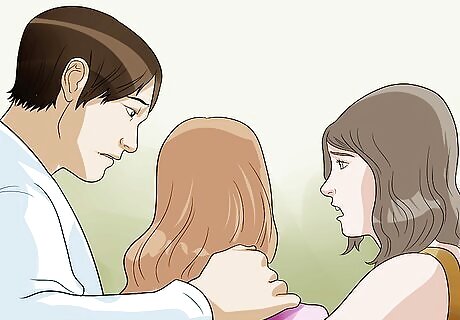
Talk with supportive friends and family. Do not isolate yourself from people who understand you and your situation. Supportive friends and family, as well as helping professionals, can play a major role in your recovery. Positive and supportive attitude and reactions of family and friends could brighten the chances of thorough recovery.. Those are the ones who could even silently provide you with all the support you need.

Stay away from people who invalidate your experience. There might be people who will tell you to forget the incident as if it never happened. Some people, even among family and friends, may advise you to forget that something like this had ever happened. There may be people who blame you, criticize you and hold you responsible for whatever happened to you. They might suggest that the rape was a consequence of your irresponsible behavior. There may be people who don't believe your version. They might ask, “Why did you not do this? You could have escaped by doing this.” There may be people who impose their decisions on you, make decisions for you, or are vociferous in saying that you have to listen to them. Some families may be too overprotective in an effort to give maximum support and love to the survivor. This can hamper the survivor's recovery. Their family's protective attitude and actions constantly remind them that they've been scarred for life. They get used to being shielded and finds it difficult to venture out to begin life anew. Keep away from people who are capable of triggering negative reactions and feelings for you. Negative attitude and negative reactions from family and friends can lead to the survivor adopting avoidant coping strategies which are maladaptive and can mar the recovery of the survivor.
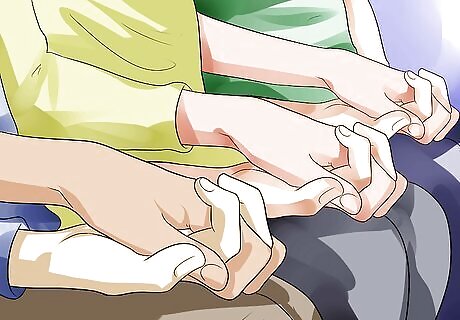
Join a support group. Counseling services try to bring the rape survivors together in the form of support groups. A support group serves as a crisis helpline because the people who are part of the group are those who are sailing in the same boat as you. They are also survivors of sexual assault and have been through the process of having to deal with the after-effects of rape. Support groups expose you to people who have overcome their assault and have thrived in their respective lives. Meeting and interacting with people who are sailing in the same boat as you would help you dismantle the wall of distrust that you have been building because of the assault on you.
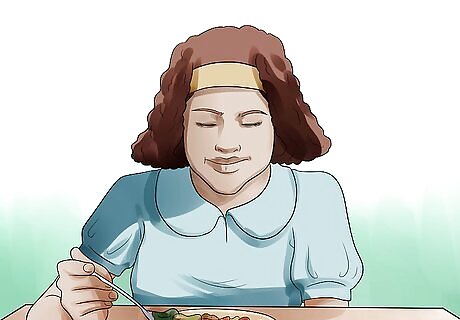
Focus on eating right. This is the time when most people least think about or show interest in food. Enroll a dietician if you can in your list of health professionals. Eat healthy, fresh foods. The diet you take has a major say in your physical and psychological well-being. Avoid junk and sugar laden foods.

Stay physically active. Try walking, jogging, swimming, cycling, dancing or kick boxing. It doesn't matter what kind of physical activity it is. Just focus on staying as active as you can. Exercising or being physically active helps to release stress, anxiety and pent-up emotions. It can also help divert your attention from painful thoughts and memories. Exercising also boosts confidence and self-esteem. Sitting at home will not do you any good. You may feel more lethargic and aggravate your fears, anxiety or depression. Exercise will also help you sleep better. One of the symptoms you may be experiencing is an inability to get proper sleep and rest. Getting physical activity will help you get better rest.

Try mindfulness exercises. Mindfulness is a proven technique incorporated into many therapies that deal with PTSD, depression, alcohol and drug abuse. This technique is very successful when used for specific purposes, such as reducing patterns in the thought process, curbing or controlling use of alcohol and drugs, chronic pain, and to improve focus. Mindfulness helps you accept difficult thoughts, emotions and feelings. It can help you release these thoughts as they come without judgment. Just stay in the present and focus on the present. Let the thoughts come and go. This way, you are providing an appropriate outlet to your thoughts and emotions that will otherwise be very tough to handle and still stay stable. Mindfulness can be used to prepare for therapies such as prolonged exposure therapy and cognitive processing therapy.
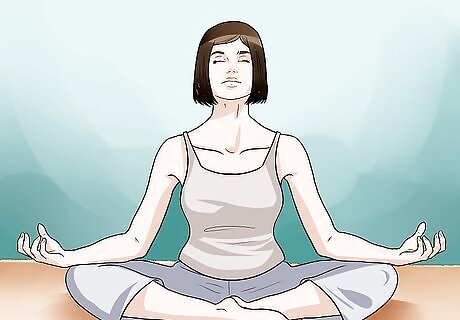
Practice yoga. Yoga helps in improving your self-confidence, awareness and control over your body. By practicing yoga regularly you can expect to gain mastery in controlling thoughts as well as directing the flow of thoughts. Yoga can improve heart-rate variability which indicates that you are able to calm yourself down. When a person is experiencing flashbacks, it is difficult to differentiate between what is real and what is imaginary. Practicing yoga teaches you to be in constant touch with the present. You are totally aware of yourself, your body, your thoughts and your surroundings. Yoga is the safest and gentlest way to acquaint yourself with your own body. Survivors of sexual assault may start hating their bodies or body parts that were violated. Yoga can help you accept yourself with grace. This self-acceptance is key to recovery.
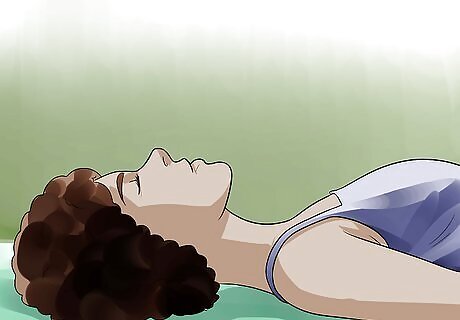
Try yoga nidra meditation. Yoga nidra, or yogi sleep, is practiced in a lying down position. In yoga nidra, you are guided through a series of instructions and rhythmic breathing. The instructions could guide you through a process of visual imagery (scanning of the body). This entire process of scanning keeps our mind busy and focused and away from distractions. Soon, your body and mind reach a state of peace and relaxation. Your energies focus on the third eye (the inner sanctuary positioned between the eyebrows). This third eye acts as a controller of the hormones in the pineal gland, located in the center of the brain. The pineal gland hormone, melatonin, works as a wonder pill to prevent, cure and heal many problems that plague the body and mind. It helps to reduce stress, promote immune system functioning, ensure good sleep, relax the nervous system, and provide holistic healing . Yoga nidra meditation podcasts or audio recordings are available for download online.

Spend time in nature. You may have developed distrust after your sexual assault. Spending time in nature may help you rebuild your trust in humanity. Pristine sights, sounds and smells will help rejuvenate you and alter your mood. You will start to remember that the world is a beautiful place to be in and the life worth living.
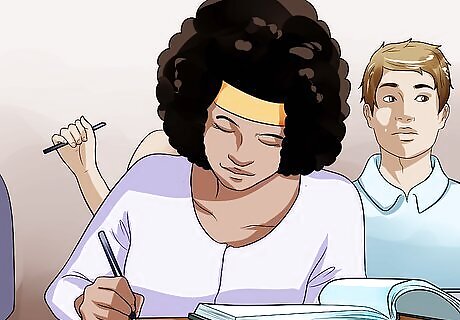
Focus on your studies or work. One incident cannot make you give up everything you enjoyed doing before. Focus on your studies or work. Volunteer at your favorite charity. Getting out into the world can help you relieve stress and connect with people.

Read inspirational books. There are stories of many rape survivors who went on to overcome the trauma to become achievers in life. Read about them. Pandora's Project has a number of recommendations, including books on rape, relationship abuse, same-sex rape, child sex abuse, and other sources.
Addressing Other After-Effects

Recognize if you have an eating disorder. Eating is one of the ways rape survivors try to deal with the traumatic experience. Many survivors of sexual assault strongly feel that their own appearance led to the assault. They may resort to binge eating or extensive starving (anorexia, bulimia). They may also use eating as a coping strategy because altering their appearance and making themselves unattractive makes them feel safe and secure, thereby minimizing their chances of sexual abuse in the future. Signs of an eating disorder may include: Significant weight loss or gain. Preoccupation with food or dieting Yellowing teeth or bad breath Lowered body temperature Refusing to go out to eat Habits at mealtime, such as cutting food into small pieces or pushing food around plate Seek help by talking with a doctor, counselor or support group. The National Eating Disorders Association has resources to help you with an eating disorder.

Recognize if you're self-harming. Survivors of rape often feel so shameful and embarrassed about what happened that they try to disfigure, distort or mutilate the body parts which have been violated or the body in general. They may be hoping to get a sense of relief. Some self-harming behavior might include cutting, biting or burning oneself. If you are thinking about self-harming, try these immediate steps: Walk away from the object you were planning to use to self-harm. Leave the room. Write down your feelings in a journal. Draw on yourself with a marker on the spot where you were going to self-harm. Call or text a friend. Get more assistance from S.A.F.E. Alternatives. This organization offers resources regarding self-harm.
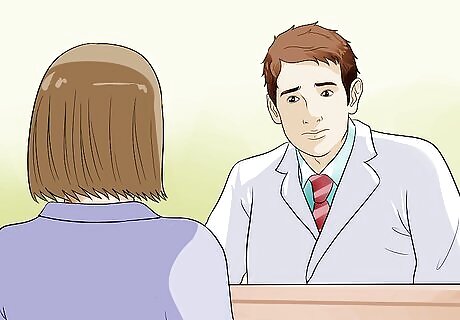
See a sex therapist. Sexual dysfunction is often an after-effect of rape. Sexual dysfunction can take various forms, such as an inability to enjoy sex, pain during intercourse, vaginismus (when the vaginal muscles involuntarily contract during penetration), or decreased sex drive. Sex therapists can often help deal with sexual dysfunction. Rape survivors are often concerned about their partner's reaction and behavior. They may wonder how their sex life will be affected, how they can cope with this trauma together, or if they will still enjoy being together as life was before the rape. Couples therapy can be useful, identifying, understanding and resolving the problems that might exist between partners. Sex therapy is a step above couple's therapy because it focuses on the intimate physical relationship. In sex therapy, the therapist works to change the survivor's thought patterns and attitudes towards sex. The therapist employs various exercises and techniques such as “sensate focus” and Kegel exercises to treat the sexual dysfunction. Sexual dysfunction can also be treated using cognitive behavioral therapy.



















Comments
0 comment